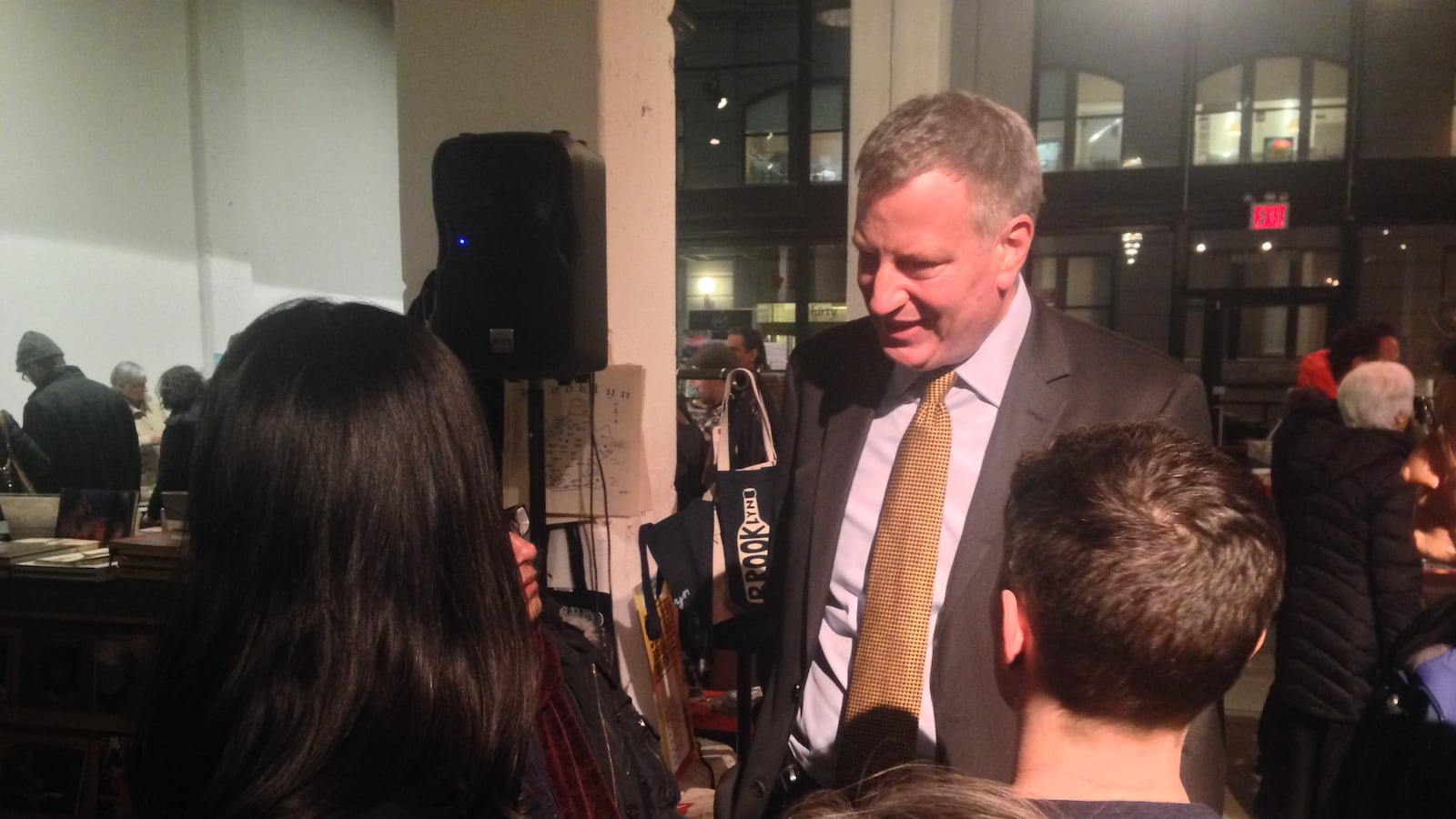Parents and teachers on the front lines of the city’s opt-out movement had two unexpected visitors on Monday night.
Mayor Bill de Blasio and his wife, Chirlane McCray, were among about 100 people at an hour-long panel discussion on Monday night in Brooklyn designed to promote “More Than a Score” – a collection of essays and personal accounts of teachers, parents and students refusing to participate in high-stakes standardized testing.
The book’s editor and contributing author, Jesse Hagopian – a Seattle high school history teacher – is related to de Blasio, McCray told Chalkbeat. Diane Ravitch, an education historian who is known for her anti-testing positions and friendly with the mayor, also contributed to the book and was a member of Monday night’s panel.
De Blasio has said he understands parents’ frustrations with state tests that leave their children feeling nervous and overwhelmed. But he and his schools Chancellor Carmen Fariña have stopped short of encouraging parents to opt their students out of the tests, and Fariña told state lawmakers on Tuesday that she supports the tests and their role as a challenge for students.
After the discussion, de Blasio was approached by several small groups of parents and teachers who have participated in the opt-out movement or are working to organize their schools to do so. Kemala Karmen, a mother of two city students, told de Blasio that both of her children’s schools had achieved nearly an 80 percent opt-out rate last year.
“You’ve inspired my focus,” de Blasio told her.
Karmen said she has been involved in organizing against standardized tests since her now 13-year-old daughter was in kindergarten. Karmen has since moved on to speak at other schools about how parents can organize.
The movement “is definitely growing,” she said.
New York City parents opted out more than 1,900 students from taking state tests in 2014 – a big increase from the about 350 students that opted out in 2013, though that group still represents less than half of 1 percent of the city’s test-takers.
The consequences attached to the tests for teachers will be more significant than they were last year, which could spur more anti-testing activism among educators. Gov. Andrew Cuomo didn’t sign a bill he had proposed that would have offered a safety net for teachers rated poorly based on their students’ performance on the tests. This spring’s round of testing will also be the second for city teachers under a new evaluation system that includes consequences for teachers earning two “ineffective” ratings (though few city teachers earned that lowest rating last year).
Cuomo has also proposed making state test scores count for an even bigger portion of a teacher’s evaluation.
But the stakes will actually be lower for students this year. The state has banned schools from using state test scores as a main factor in admissions decisions and decisions about whether a student will be promoted to the next grade, changes that parents weren’t aware of before last spring’s tests. And while some struggling city schools are facing strict deadlines to improve their test scores, Chancellor Carmen Fariña’s new method for judging city schools has moved away from showcasing test-score growth.
Marissa Torres, a teacher at P.S. 261 in Brooklyn, said after the panel Monday that her school has boosted efforts to encourage parents to opt their kids out of state tests. The school’s parent action team recently sent out a letter to all parents in English, Spanish, and Arabic to gauge how many might be interested in opting their child out of state exams, she said.
“We’re much more organized than last year,” she said.
Correction: A previous version of this story misidentified the boroughs where Kemala Karmen’s children attend school.


